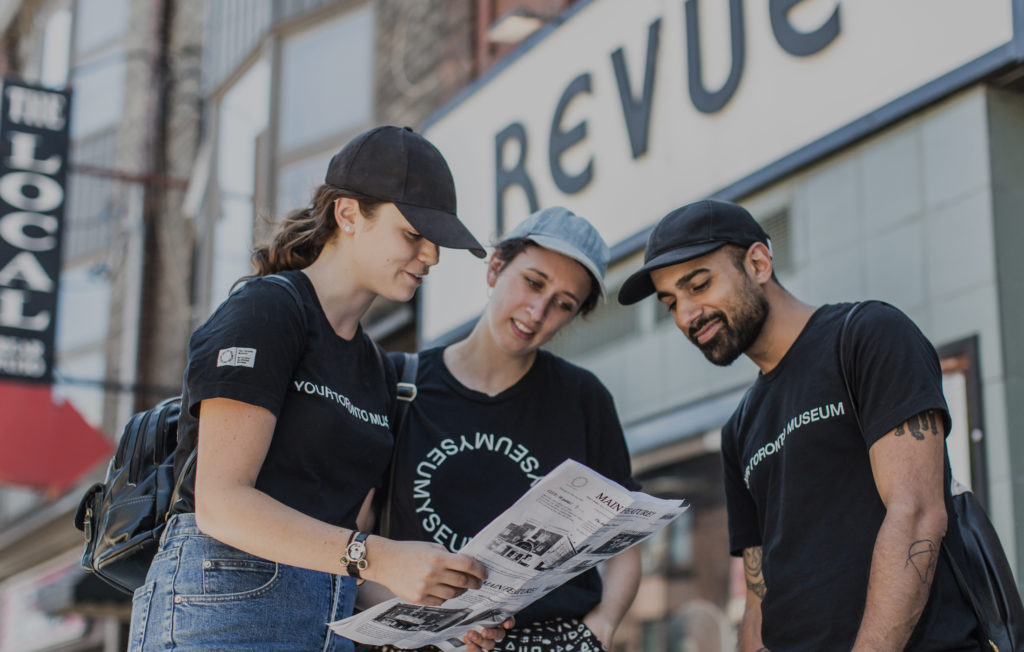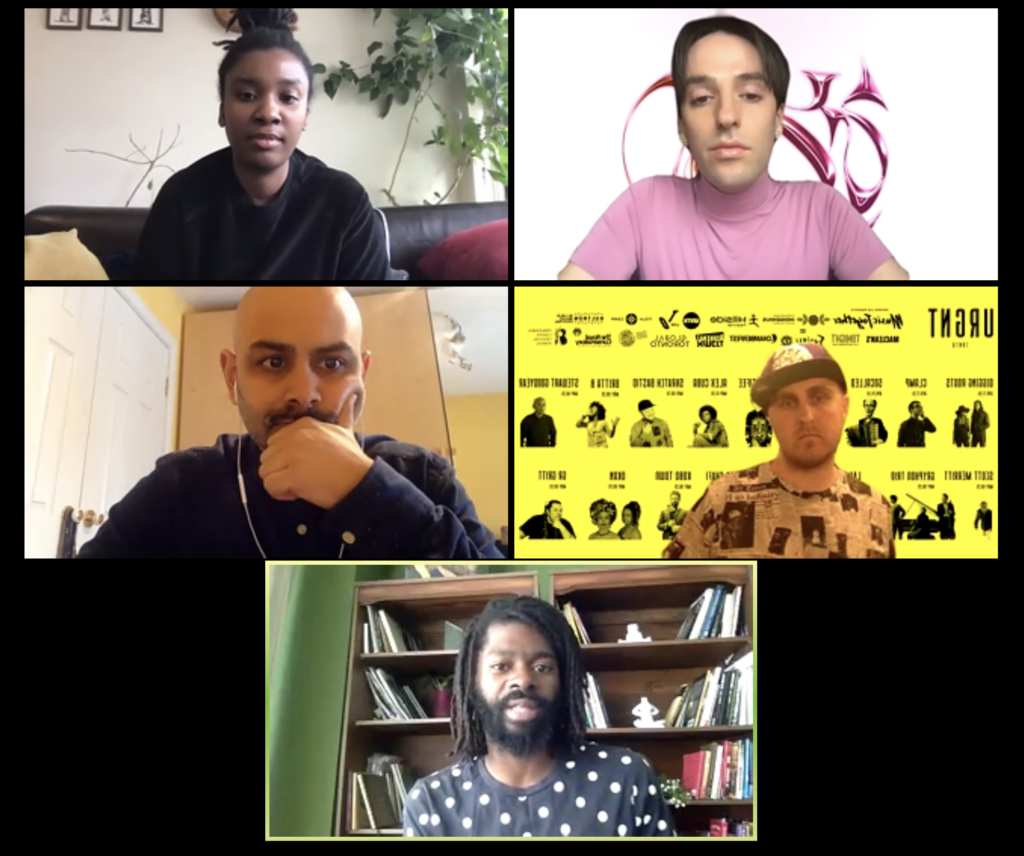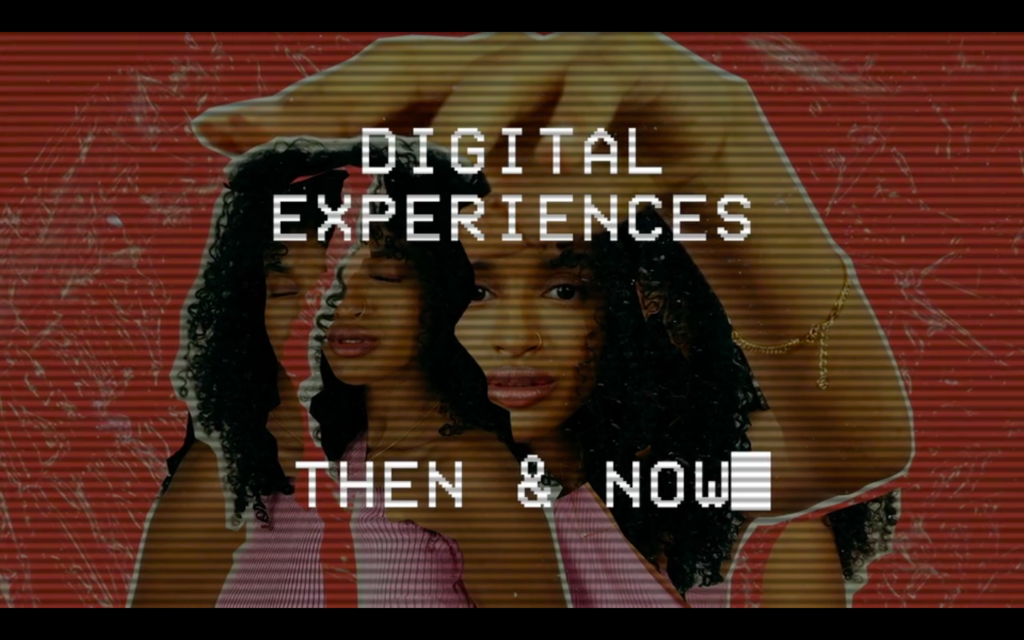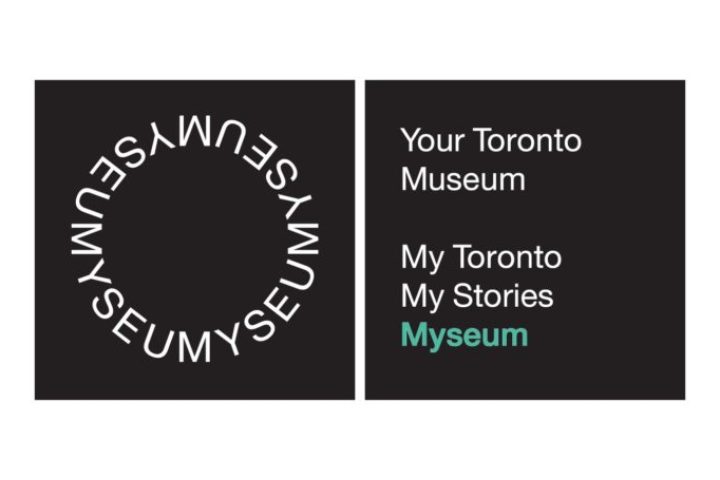
Jeremy Diamond
CEO of Myseum of Toronto
Museums have no borders,
they have a network
June 21, 2020
Keywords: Community Programming, Storytelling, COVID-19, Collaboration, Virtual Programming
As a museum without walls—with no permanent physical space to house a collection or exhibitions—Myseum of Toronto has always been rooted in the city’s communities. Programming often takes place directly within a neighborhood that is relevant to the community we are trying to address. We pop up in independent galleries, community centers, breweries, theatres, and outdoors in the streets, parks, and even waters of Toronto. This could be in the form of exhibitions, performances, panel discussions, or workshops, and is often done in collaboration with the spaces in which we work.

Because we share the stories of communities in Toronto we also want to work with them and each of their members. We highlight stories that are often underrepresented, such as the perspectives of Tamil Canadians during the 2009 protests, or the story of Black train porters in Canada in the early 1900s. Myseum aims to provide community responsive programmes that engage directly with partners and include a diversity of perspectives as a result. Best practices for community engaged programming include: listening and responding to a community-articulated need; co-designing programmes with community partners; and taking a flexible approach to partnership and planning. For Myseum, the ultimate goal of this type of programming is to tell the stories of Toronto—past, present and future. This model has always worked well for us, but we had no idea just how important it would be during times of crisis.
Listening and responding to a community-articulated need
Myseum’s work is rooted in partnership and much of our programme planning is approached using a crowdsourced model, whereby we invite the community, curatorial teams, cultural organisations, artists, historians, and others to contribute. Partners will share a theme, subject, or concept related to the city of Toronto that they plan to develop into an exhibition, performance, or other form of creative activation. When the COVID-19 pandemic hit, we recognised that this was an important time to shift the conversation, so we spoke to the community to determine key themes and subjects that would target the varying needs of different cultural communities.
From this, we started In the Time of COVID, a series of online events addressing how various sectors are adapting to the new normal. We first explored the changing value for art and artists during a time of crisis through the two-part sub-series Art in the Time of COVID-19. We went on to explore the importance of community care and the link between precarious workers and essential workers through Stories of Collective Care in the Time of COVID-19. This series of events will continue to evolve and respond to the needs of the community as the situation progresses, exploring other themes such as mutual aid, city planning in uncertain futures, among others.

Co-designing programmes with community partners
Through In the Time of COVID, we have been able to work with community partners, both new and previously established, in order to co-design relevant programming. Community organisations, groups and individuals often do not have the capacity or resources to devote to long-term planning; as a result, these partners can often only operate within shorter timelines.
The Kwentong Bayan Collective, a collective of two Toronto-based artists, has worked on past programming for Myseum and is Myseum’s 2020 Artist Collective in Residence. Myseum decided to work with KBC to co-design the Stories of Collective Care sub-series in order to explore collective strategies of mutual support and grassroots organising, and experience cultural practices being created during this time of global transition. Community members discussed issues and ideas surrounding what we can learn from collective care in Toronto’s Parkdale neighbourhood, and how we can better protect our workers who are providing essential services but are marginalised by the system.
Taking a flexible approach to partnership and planning
Myseum’s programming has always been designed to be anchored by two major programmes annually to allow space for flexible and responsive programming the rest of the year. Our flagship programme, the annual Myseum Intersections Festival, explores intersectional perspectives of Toronto through collaborative exhibitions, events, workshops and tours. Due to COVID-19, the 2020 festival was postponed and we worked with festival participants to present aspects of their projects online. This has required a tremendous amount of flexibility from our partners, in order to adapt their programming to fit within this new COVID-19 lens.
For example, one event called Pull Up! had been planned to explore and document the experiences of Black youth in Toronto’s alternative party spaces, through an exhibition and live performance. In the Quarantine Edition, this project explored the state of digital music experiences and how creatives are restrategising in the age of COVID-19 with a panel discussion, virtual performance, and a fundraising campaign to pay DJs for live online sets.

Our flexible approach to programming has allowed us to highlight the issues that diverse communities are facing, and are interested in shining a spotlight on, in real time. Through post-event surveys we have learned that 80% of respondents feel that they are gaining new and valuable insights, indicating that our partners have been able to increase visibility for the work they are doing and issues they are confronted with during this pandemic. We have also discovered that interest in these topics crosses boundaries, attracting people from around the world through social media and virtual events, with attendance across 30 different countries.
At Myseum we are honoured to offer a platform with accessible programming, amplify underrepresented voices, and work towards finding solutions for issues like collective care for vulnerable people, intersectional vulnerabilities presented by COVID-19, and artists’ lost income, throughout the global pandemic and beyond.
Editorial coordination by Kendra Thompson
References and resources
Art in the Time of COVID-19, Part 1
Stories of Collective Care in the Time of COVID-19, Part 2
More information about the Mysem of Toronto’s website
More information about the Kwentong Bayan Collective
More information about the Myseum Intersections Festival
Images of Resistance: an Archive of Action
More about the Pull Up! event
Opinions expressed in the article do not commit ICOM in any way and are the responsibility of its author.
To participate in our newest ICOM Voices call for contributions, click here.
